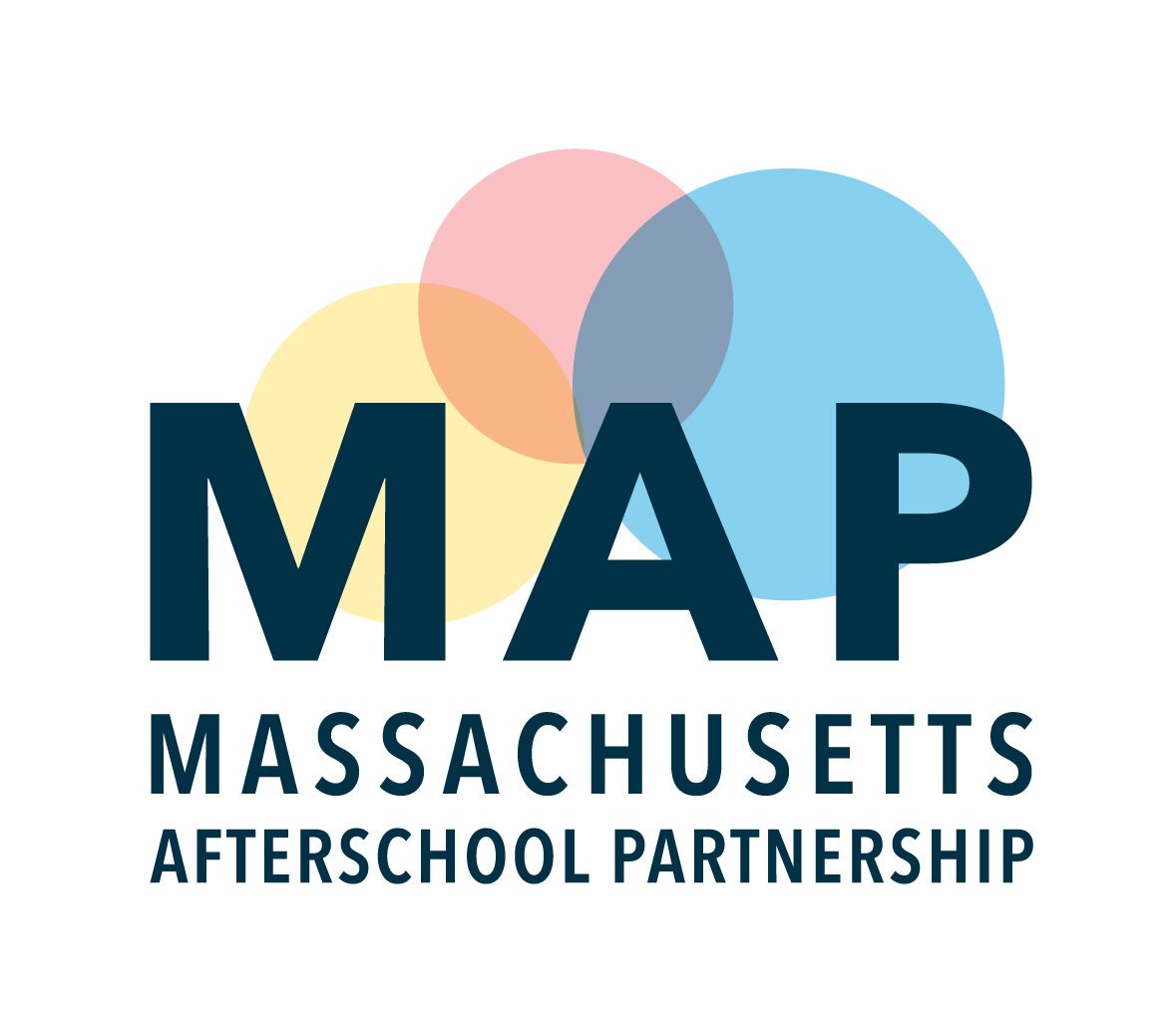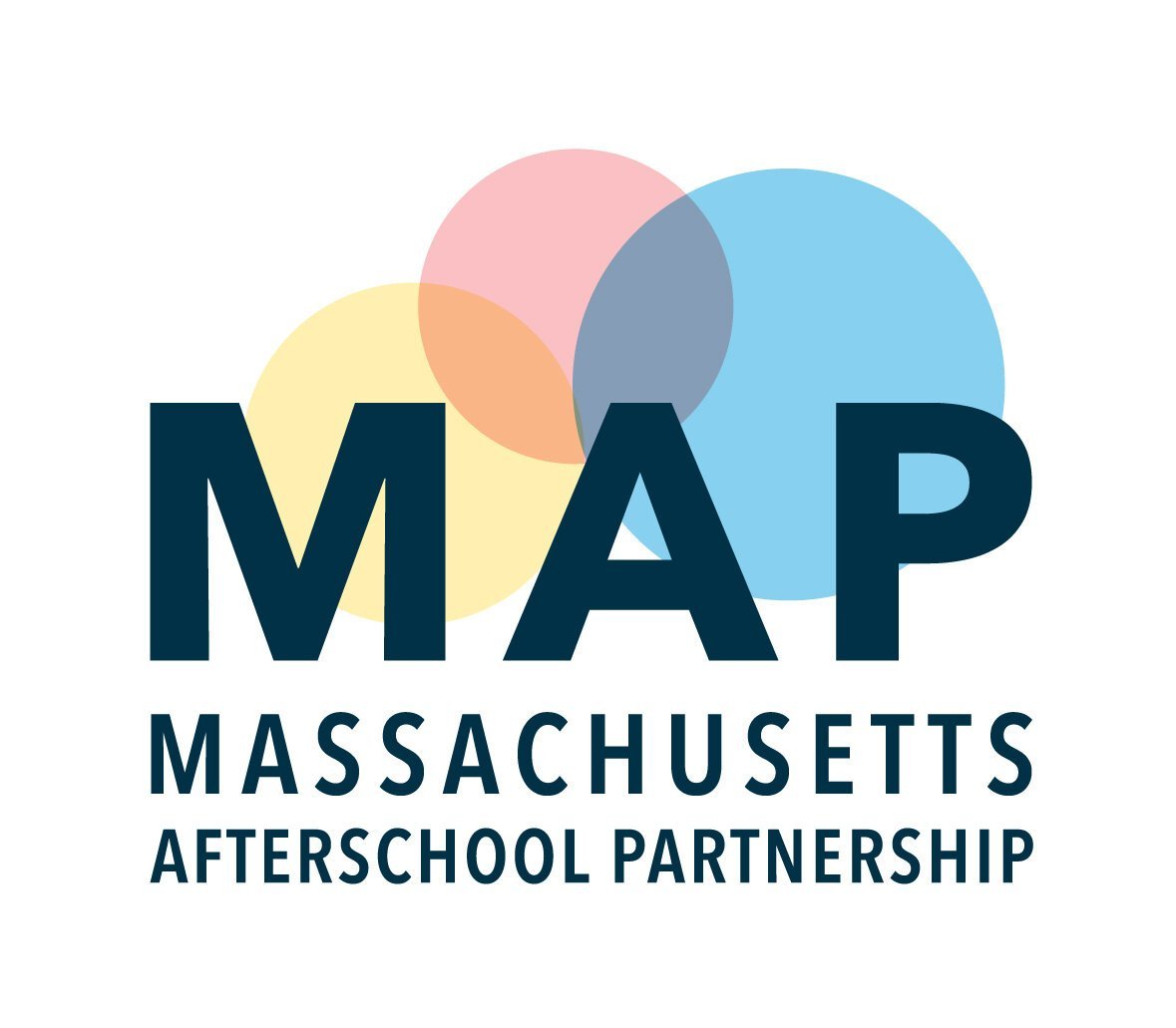
Advancing Policy to Support Afterschool
MAP’s geographic focus is statewide with a special emphasis on supporting cities and towns with historically and currently marginalized groups, including quite intentionally the UWMBMV’s 12 focus communities. Through statewide advocacy and professional development, MAP is dedicated to ensuring stakeholders in communities across the state have a voice in the policymaking process. From Pittsfield to Lawrence and south to the Cape and Islands, MAP has a hands-on approach in communities to explore opportunities so that more young people, especially youth of color, have access to quality afterschool and summer programs.
MAP works across Massachusetts to form a shared commitment to systems change and collaboration that leverages the expertise of diverse partners in cities and towns. By working with community members, businesses, nonprofits, and policy makers in towns across Massachusetts, we create an exchange of ideas that increase access to high-quality afterschool programs and support economic justice for working families by allowing them to remain at works.
Federal Government Withholds Funding for Afterschool and Summer Programs
This week, the U.S. Department of Education announced it is pausing federal funding for Titles I-IV, including 21st Century Community Learning Centers (21st CCLC) and other educational grant programs. These crucial funds were expected to be released July 1 but are now being withheld until a review of grant expenditures is completed.
In FY25, Massachusetts received $19.9 million in 21st CCLC funding, serving more than 20,000 students statewide. Delaying the release of these funds poses a serious threat to the essential services afterschool and summer programs provide to students every day. Students who are learning English, come from low-income families, or have IEPs would be particularly impacted.
The Afterschool Alliance has launched a tool that allows you to contact your federal delegation to get the funds released. MAP urges you to write your congressperson using the link below.
In the Media
Proposed Federal Cuts
Below is a deep dive into the proposed elimination of several critical federal programs. This information comes from our friends at the Afterschool Alliance who have been going through the President’s budget line by line to determine what is at stake. MAP wants to stress that these cuts are purely recommendations. Despite what the administration says, Congress has authority over appropriating funds. The president’s cuts are drastic and alarming, but there is still an opportunity to make your voice heard to our federal delegation.
Here’s a breakdown of proposed cuts:
Department of Education budget cut by $12.4 billion (15%)
Proposes cut of $4.535 billion across K-12 programs; Preserves Title I funding
Proposes $2 billion block grant for 18 other K-12 programs into “K-12 Simplified Funding Program”
Proposes level funding for Individuals with Disabilities Education Act (IDEA) and proposes new "Special Education Simplified Funding Program" that consolidates seven unnamed IDEA programs
TRIO, GEAR UP, Federal Work Study, Preschool Development Grant Birth through Five (PDG B-5) programs proposed for elimination
Proposed funding increase of $60 million for Charter Schools, would bring total funding level to $500 million
21st Century Community Learning Centers (CCLC)
The ‘skinny’ budget proposal appears to eliminate the current, dedicated $1.3 billion 21st CCLC program through the proposed consolidation of 18 education discretionary and formula grant programs into one block grant totaling only $2B; and then proposing to cut the existing programs by $4.535 billion
It is possible afterschool and summer could be an allowable use of the new “K-12 Simplified Funding Program” for schools, however that means 21st CCLC funding as we know it would be eliminated as community-based organizations, faith-based organizations, etc., would no longer be eligible for grants, and activity funding for capacity supports/PD would go away
This is a proposal only; Congress can reject it as they did similar proposals (2017-2020)
Other key funding streams for afterschool/summer
Corporation for National and Community Service proposed for elimination
Institute of Museum and Library Services proposed for elimination
National Science Foundation proposed funding cut of 55%, from $9 billion to $4 billion
Child Care Development Block Grant not specified but reportedly proposed to keep funding at last year’s level
School-based child nutrition programs are not part of annual discretionary process, are part of mandatory spending therefore not part of budget proposal
Proposed $500 million for new Make America Healthy Again initiative to ‘tackle nutrition, physical activity, healthy lifestyles and more”
This can all be overwhelming but your voice matters! Please contact your Congressperson or Senator and tell them to support 21st CCLC funding. Click here to use the Alliance’s tool to quickly write a message to your elected officials.

Policy Priorities
MAP’s Policy Pillars
A major component of MAP’s work is our advocacy for local, state, and federal policies that positively impact the afterschool field. We make sure that school-age programs are represented at decision-making tables, and that the needs of providers and families they serve at addressed.
You can read more in our 2024 Policy Pillars document by clicking on the photo to the right.

Engage Every Student
The Engage Every Student initiative was launched by U.S. Secretary of Education, Dr. Miguel Cardona, on July 14th, 2022.
The U.S. Department of Education partnered with the Afterschool Alliance, AASA, the School Superintendents Association, National League of Cities, National Summer Learning Association, and the National Comprehensive Center to provide schools and communities the connections and assistance they need to expand access to afterschool and summer learning programs.
ASOST Line Item
Massachusetts is one of few states throughout the country that has a line-item dedicated specifically to afterschool and summer learning programs. The goal of this state funded (line item 7061-9611) competitive grant program under Fund Codes 527-528 is to enhance the quality of and increase access to afterschool and out-of-school time (ASOST) programs in order to improve the academic, physical, social, and emotional wellness of school-age youth during the school year and the summer months.

Get involved!
-

Local Listening Sessions
In order to inform our policy priorities, MAP is working with cities, towns, and regions across Massachusetts to host local listening sessions. Listening sessions last approximately an hour and a half and can be conducted virtually or in person. If you are interested in hosting a local listening session in your town, please contact us below.
-

Statewide Calls
MAP hosts regular policy and practice calls to share information with the field and learn from educators and program administrators. Previous calls have focused on advocacy during the budget season, cannabis tax revenue legislation to support afterschool, and the National Institute on Out-of-School Time (NIOST).
Calls will begin again in fall 2024. Click below to email us with suggestions of what you’d like to hear about, or who we should invite!
-

OST Advocacy Toolkit
MAP has created an OST Advocacy Toolkit for you! Advocacy for Out-of-School Time (OST) is the act of calling for support, raising awareness, expanding resources, and increasing access for high-quality, affordable OST programs for all children and youth. Advocacy can mean calling or emailing your legislators, coalition-building among your OST colleagues and other stakeholders or speaking on afterschool during public hearings and/or advocacy events. Click below to learn more.
Cannabis Tax Revenue
On November 8th, 2016, Massachusetts voted to legalize recreational marijuana use and sales. Since then, the state government and local municipalities have created policies that impose taxes on cannabis sales. Recently, shops selling cannabis have begun to acquire licenses and open. As a result, the Commonwealth has created a new tax revenue stream and the question becomes, what should be done with these new dollars? What about the expansion of programs that are proven to mitigate rates of drug misuse? What about funding programs that build protective factors that keep young people safe? What about creating programs that over 300,000 high need students in Massachusetts deserve access to? What about Afterschool?
MAP presented on S.255, An act relative to access for after school and out-of-school time programs petitioned by Senator Crighton, before the Afterschool Caucus. Read more below!







